Amidst all the mainstream hoopla, the reporters seemed to have forgotten a rather pivotal event. Infidel Castro takes a deeper look into “Brexit”.
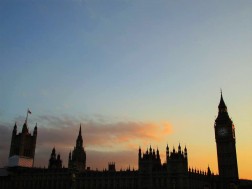
The European Union is a group of 28 countries formed at the end of WWII, to foster trade and better relations among the razed nations of Europe. 19 of these countries use the same currency, and together, they’ve formed almost a separate identity, having their own parliament, voting on issues such as environment and transport.
So, why should anyone give a hoot?
Think the United Kingdom. A kitty-party loving; cricket and football playing; accented group of islands, which just happened to colonize a little less than half of the world. Oh, and they also occupy a permanent seat on the Security Council.
This nation wants to cede from the European Union. It is, indeed, a rather precarious situation, and a decision, which if followed through with, could alter the political situation of the world forever.
The intention of this article is to weigh both stay and leave, so you may derive your own conclusions.
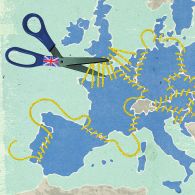
On the 20th of February, Prime Minister David Cameron announced the date for the referendum when 64-odd million British citizens shall be voting on a decision which could possibly be the most quintessential vote they’ll ever caste. One of the main fronts of Cameron was his assurance that the whole of Britain would vote in order for them to decide if they want to stay within the EU. Pushed to a rightist platform by the widely popular United Kingdom Independence Party (UKIP), the vote was scheduled earlier than expected, and is surprisingly well on track- lot of columnists thought it would never take of; and now that it is, many still refuse to believe that it’s actually happening.
Britain has always had a very strained relationship with the EU. It has its own currency, opposed to adopting the Euro, and it didn’t have an easy route into the EU.
The arguments for the “leave” campaign seem lucrative to the commonplace Briton- statistically, Britain is one of the few countries that pays more than it gets as part of its membership. According to the National Audit Office, Britain paid a total of £5.7 billion.

Infidel was never good with numbers, yet trying to put it in perspective: it means roughly £24 million leaving the state coffers every single day. That is a lot of money- it constitutes a little less than 1.5% of the annual expenditure of the budget, and equivalent to half of the allotted budget for education in the country. Such amounts of money allotted for what is essentially membership into an exclusive club. Worth it?
Cessationists argue that this money could be much better spent elsewhere- to promote scientific research, boost sporting facilities (the Englishmen have always been salty about losing almost every trophy worth mention in their own cricket!).
Logically, the immigration should also drop- any country not part of the EU doesn’t really feature on an outsider’s mind to settle into- think Russia, Norway, or Switzerland. Immigrants pose a problem for any country- non-taxpayers nibbling into the budget. Nobody really likes immigrants- the Mexicans in USA, or Bangladeshis in India, for examples.
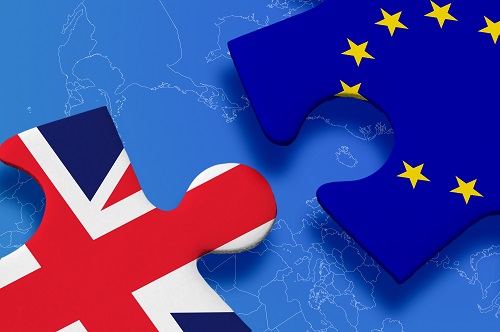
The main case for leaving the EU would be a significant cut in the Brussels red tape*. The trade that Britain transacts with the EU obviously takes a hit, but both can’t survive without each other. As a result, they’ll achieve autonomy at the cost of, well, rising costs.
But, status quo wouldn’t be too bad either. Britain annually conducts trade with the EU to the tune of £400 billion- around 52% of the total business that the UK transacts, and this would only get more cumbersome and expensive if they leave the Union. Security would also be an issue- UK would be out of Interpol’s jurisdiction, and would seriously create a bit of an issue.
Apart from all of this, there is almost certainly going to be a bit of an internal strife if they do indeed leave the EU- Scotland would again ask for its own secession from the Kingdom, after failing to do so in 2014. This would again be bad news, as the state cannot afford another vote- elections are quite expensive as it is.
So which side is correct in this matter? To be honest, it is really difficult question to answer. That this question cannot simply be answered is an insight into the issue as well- you don’t find questions such as “should France be leaving the Union?”- Brexit is a very special case indeed.
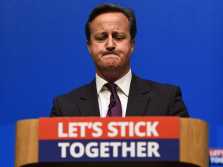
For himself, Castro thinks that UK should stick with the EU, and try to negotiate for better rules, lesser red tape. Wriggling out of a sinking ship is an easy task; for a country that wields such the position of an international superpower, it should try to reinvent some of the rules- it should have a better relation staying inside the EU than a worse one outside it. Of course, it could negotiate a deal like Norway or Switzerland have- but then again, they’ll be bound by certain rules. Creating a special status for Britain itself is not completely out of the question, but won’t be entertained by Brussels.
Castro is confounded by this sudden urge of the Brits to establish their sovereignty- nobody thinks that they’re not a separate entity; or that their credentials are not at stake. However, if they choose to leave, many will understand. Questions won’t be asked- every country has the right to leave. However, the common fear is that this would set a precedent for other countries getting the short end of the stick to leave as well, something that could potentially be disastrous.
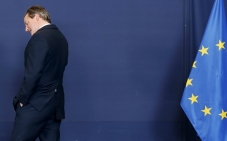
To end, here are some wise words by Benjamin Franklin:
‘He who would rather exchange liberty for security, deserves neither.’


Brilliant article. More power to u. Would love to c More on world politics.
LikeLiked by 1 person
Hey, thanks for reading Earthlings Today. Please do follow our page on Facebook. As for World Politics there’s one article on it, every issue.
LikeLike
The European Union is about to collapse .The Brussels terrorist attack today 3/22/2016 is the tip of the Iceberg.30 killed more than 230 injured.Once Britain out of the UN the others will follow. Cheers.
LikeLike
What effect that shall have, remains to be seen, though. And maybe we’ll have an analysis on it. Do keep reading Earthlings, Today.
LikeLiked by 1 person
Grt! Nice thoughts.
LikeLike
Thank you! Do keep reading!
LikeLike
To prepare the essay it must have taken a lot of reading. It’s very educative. I could know many things. Definitely waiting for the next essay. As such I don’t feel there is any shortfall in this article. If one forces me to point one then only I may say,”Description of UK’s position may have been consolidated at one space with lesser words.”. But again the author is superb and will love the next.
LikeLike
Thank you very much for your kind words, Mr. Senapati. We’ll pass on your feedback to Infidel, and he’ll surely tie down his words with the next article. Sunday, 15th is when his next article – a follow up on the US Elections is due. We hope we shall have your comments with us for that as well.
Do keep reading, and let us know about any topic you’d like to read on.
LikeLike